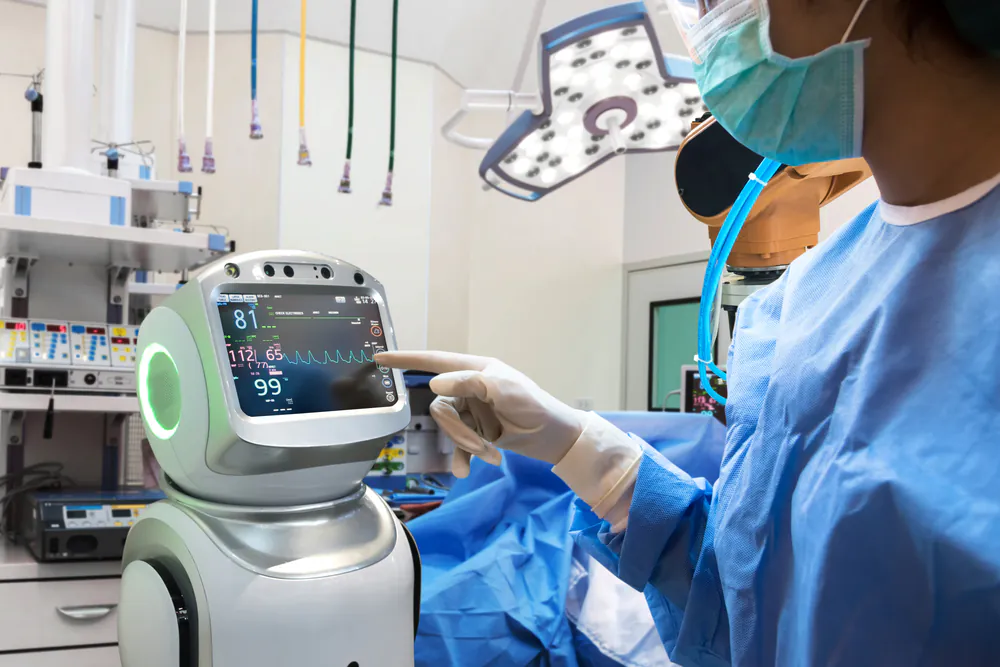The Rise of Robot-Assisted Surgeries in Pakistan
A groundbreaking development in the field of healthcare is unfolding in Pakistan, where robot-assisted surgeries are beginning to revolutionize the way medical procedures are performed. With technology advancing at an incredible pace, robotic systems are now being used to assist surgeons in performing complex operations with precision and efficiency. These robotic systems, equipped with advanced tools and capabilities, are expected to reshape the medical landscape and provide patients with safer, faster, and more effective treatments.
What Is a Robot Surgeon?
A robot surgeon is a highly advanced machine that assists human surgeons during procedures. Rather than replacing doctors, these robotic systems are designed to enhance their skills, providing higher accuracy and minimizing human error. With robotic arms, cameras, and specialized instruments, robot surgeons allow for smaller incisions, which means less trauma to the body, shorter recovery times, and reduced risk of infection.
In Pakistan, hospitals are beginning to integrate these robotic systems into their operating theaters, marking a significant step towards modernizing the healthcare system. These systems enable surgeons to perform minimally invasive procedures, allowing for better outcomes and quicker recoveries.
How Do Robot Surgeries Work?
Robot-assisted surgeries work by using a console that gives surgeons the ability to control robotic arms and instruments. These robotic systems are equipped with high-definition cameras, which provide the surgeon with enhanced vision of the surgical area. The robot’s arms are designed to mimic the movements of the surgeon’s hands, but with greater precision.
The key advantage of robot-assisted surgeries is the ability to make more precise movements than human hands alone can achieve. This precision is particularly beneficial for delicate operations such as heart surgeries, prostate surgeries, and even complex spinal surgeries.
Benefits of Robot-Assisted Surgeries
- Minimized Invasive Techniques: Robot-assisted surgeries are minimally invasive, meaning they require smaller incisions. This leads to less pain, fewer complications, and quicker healing for patients.
- Enhanced Precision: The precision offered by robotic systems is unmatched. Surgeons can perform complex procedures with high accuracy, reducing the chances of human error.
- Shorter Recovery Times: Since the procedures are less invasive, patients typically experience shorter recovery times and less postoperative pain.
- Better Outcomes: With increased precision, patients experience better overall surgical outcomes, including reduced bleeding, fewer infections, and quicker recovery.
Transforming Healthcare in Pakistan
The introduction of robotic surgery in Pakistan’s healthcare system is a step toward bringing world-class medical care to the country. While the technology is still in its early stages, it has the potential to significantly improve the quality of healthcare services, especially for complex and high-risk surgeries. Hospitals in major cities are beginning to invest in robotic systems to keep pace with global medical advancements and provide better care to their patients.
According to Dr. Ali Haider, a leading surgeon who recently used a robot-assisted system for a prostate surgery, “The precision and control provided by the robotic system were beyond what was possible with traditional methods. It allowed us to minimize the risks associated with complex surgeries and significantly improved the patient’s recovery time.”
The Future of Robot-Assisted Surgeries in Pakistan
As technology continues to evolve, the future of robot-assisted surgeries looks promising. More hospitals in Pakistan are expected to adopt robotic systems, which could pave the way for the development of more sophisticated medical technologies. For now, Pakistan’s healthcare sector is poised to benefit from these innovations, improving patient care and making cutting-edge medical treatments more accessible.
The growing presence of robot surgeons in Pakistan marks a new chapter in the country’s medical history. As these systems become more widespread, they are expected to change not only the way surgeries are performed but also the overall healthcare experience for patients.
Conclusion
The introduction of robot-assisted surgeries is a significant milestone for Pakistan’s healthcare sector. By integrating advanced robotic technologies into surgical procedures, the country is taking a crucial step towards modernizing its healthcare system and providing patients with safer and more effective treatments. With the potential to revolutionize medical procedures, robot surgeons are poised to play a key role in shaping the future of healthcare in Pakistan.




+ There are no comments
Add yours